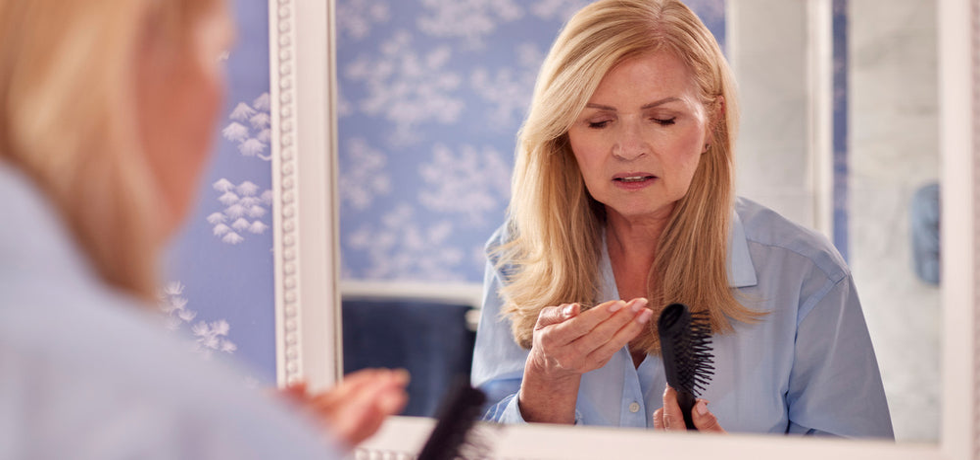
Understanding Menopausal Hair Loss: Myths vs. Facts
A Natural Transition and Hair Loss Concerns
As we journey through life, every woman eventually encounters menopausea natural process that signifies the end of reproductive years. Typically occurring between the ages of 45 and 55, menopause often brings with it a whirlwind of changes in the body, including hair loss. With this transition, many women face the discomfort of menopausal hair loss, leading to a flurry of myths and misconceptions. This blog aims to debunk these myths and share facts to help you understand what really happens during menopause and its impact on hair.
Myth 1: Menopausal Hair Loss is Inevitable
The fear of hair loss during menopause is widespread; however, it’s important to note that while many women do experience some degree of hair thinning, it is not a foregone conclusion. Menopausal hair loss can be attributed to hormonal changes, particularly the decrease in estrogen and progesterone levels. It’s essential to consider various factors, including genetics, lifestyle, and stress levels, which can also contribute to hair thinning. By understanding these influences, you can take proactive steps to maintain hair health during this transition.
Myth 2: Hair Loss During Menopause is Permanent
A common worry among women is that any hair lost during menopause is gone for good. Fortunately, this is not the case! While it may take some time, many women can see their hair return to its natural growth cycle. As hormone levels stabilize after menopause, hair follicles may regain their vitality. Embracing a healthy lifestyle with proper nutrition, hydration, and stress management can support recovery and hair regrowth.
Myth 3: You Cant Do Anything About It
Another misconception is that there is nothing you can do to manage menopausal hair loss. The truth is that women have numerous options for hair wellness. Simple steps such as staying hydrated, eating a balanced diet rich in proteins and vitamins, and engaging in regular exercise can have a significant impact. In addition, many women find success using gentle hair products free from harsh chemicals. Regular consultations with dermatologists can also guide you toward effective treatments tailored for your specific needs.
Addressing Hair Health: A Holistic Approach
To effectively manage menopausal hair loss, consider adopting a holistic approach that encompasses not just physical health but emotional well-being as well. Engage in relaxing activities that help reduce stress and promote overall health. Mindfulness practices such as yoga, meditation, or even simple walks in nature can significantly decrease stress and improve your mood, which in turn may help with hair health.
Conclusion: Embrace the Change
Understanding menopausal hair loss is crucial in alleviating fears and misconceptions. While hair loss may occur, it is often temporary and manageable. Open discussions with healthcare providers and adopting healthy habits can help mitigate hair concerns and empower you throughout this transition. Remember, you are not alone in this journeysupport is available, and there are ways to nurture your hair and maintain its health.
For professional assistance and expert advice from leading dermatologists like Dr. Hital Patel, experience the benefits of understanding menopausal hair loss with Hair & Skin Specialist Dr. Hital Patel at The Skin Artistry. Our clinics in PDPU Gandhinagar, Vastrapur Ahmedabad and Hyderabad (Visiting Consultant) offer top-quality care and personalized treatments. Visit us today to learn more about our services and take advantage of our special offers! For more insights, updates, or to collaborate, stay connected with The Skin Artistry.

